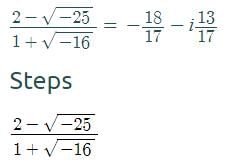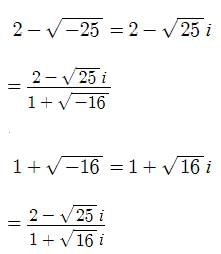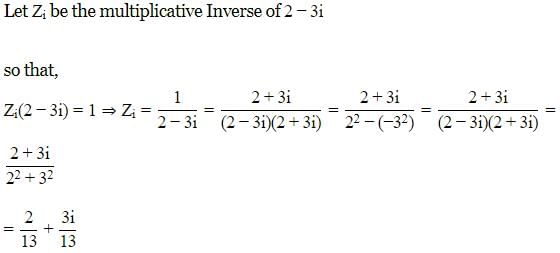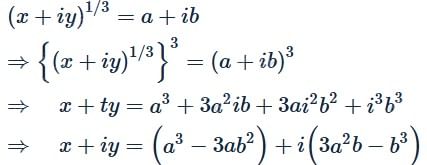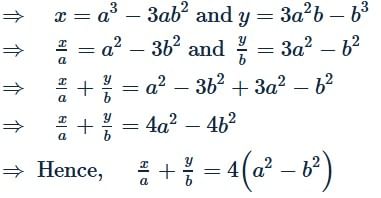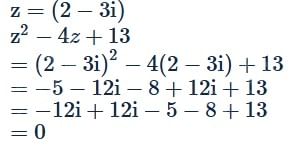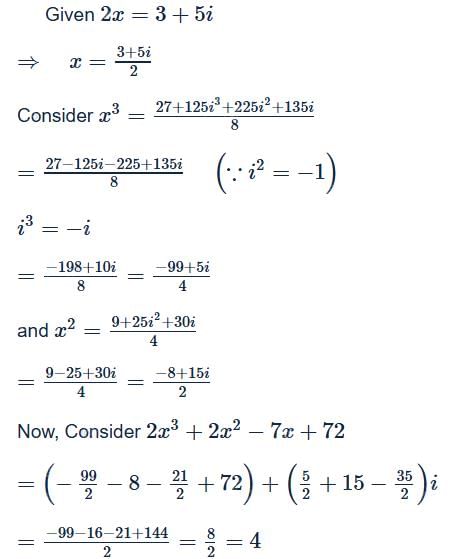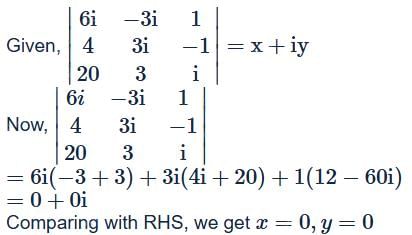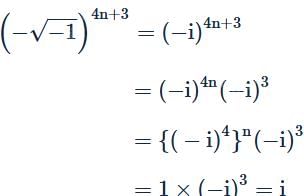Test: Introduction To Complex Numbers - JEE MCQ
Test Description
15 Questions MCQ Test - Test: Introduction To Complex Numbers
Test: Introduction To Complex Numbers for JEE 2025 is part of JEE preparation. The Test: Introduction To Complex Numbers questions and answers have been prepared
according to the JEE exam syllabus.The Test: Introduction To Complex Numbers MCQs are made for JEE 2025 Exam.
Find important definitions, questions, notes, meanings, examples, exercises, MCQs and online tests for Test: Introduction To Complex Numbers below.
Solutions of Test: Introduction To Complex Numbers questions in English are available as part of our course for JEE & Test: Introduction To Complex Numbers solutions in
Hindi for JEE course.
Download more important topics, notes, lectures and mock test series for JEE Exam by signing up for free. Attempt Test: Introduction To Complex Numbers | 15 questions in 15 minutes | Mock test for JEE preparation | Free important questions MCQ to study for JEE Exam | Download free PDF with solutions
Test: Introduction To Complex Numbers - Question 1
Find the result in the form a + ib of (2-√-25) / (1+√-16)
Detailed Solution for Test: Introduction To Complex Numbers - Question 1
Detailed Solution for Test: Introduction To Complex Numbers - Question 2
Test: Introduction To Complex Numbers - Question 3
Find the real numbers x and y such that : (x + iy)(3 + 2i) = 1 + i
Detailed Solution for Test: Introduction To Complex Numbers - Question 3
Test: Introduction To Complex Numbers - Question 4
Find the reciprocal (or multiplicative inverse) of -2 + 5i
Detailed Solution for Test: Introduction To Complex Numbers - Question 4
Test: Introduction To Complex Numbers - Question 5
Find the real numbers x and y such that : (x + iy)(3+2i) = 1 + i
Detailed Solution for Test: Introduction To Complex Numbers - Question 5
Detailed Solution for Test: Introduction To Complex Numbers - Question 6
Test: Introduction To Complex Numbers - Question 7
Express the following in standard form : (8 - 4i) - (-2 - 3i) + (-10 + 3i)
Detailed Solution for Test: Introduction To Complex Numbers - Question 7
Detailed Solution for Test: Introduction To Complex Numbers - Question 8
Test: Introduction To Complex Numbers - Question 9
If (x + iy)1/3 = a + ib, then x/a + y/b = K(a2 − b2), then the value of K is
Detailed Solution for Test: Introduction To Complex Numbers - Question 9
Detailed Solution for Test: Introduction To Complex Numbers - Question 10
Detailed Solution for Test: Introduction To Complex Numbers - Question 11
Test: Introduction To Complex Numbers - Question 12
If m1, m2, m3 and m4 respectively denote the moduli of the complex numbers 1 + 4i,3 + i,1 − i and 2 − 3i, then the correct one, among the following is
Detailed Solution for Test: Introduction To Complex Numbers - Question 12
Test: Introduction To Complex Numbers - Question 13
If 2x = 3 + 5i, then what is the value of 2x3 + 2x2 − 7x + 72?
Detailed Solution for Test: Introduction To Complex Numbers - Question 13
Detailed Solution for Test: Introduction To Complex Numbers - Question 14
Detailed Solution for Test: Introduction To Complex Numbers - Question 15
Information about Test: Introduction To Complex Numbers Page
In this test you can find the Exam questions for Test: Introduction To Complex Numbers solved & explained in the simplest way possible.
Besides giving Questions and answers for Test: Introduction To Complex Numbers, EduRev gives you an ample number of Online tests for practice
Download as PDF


